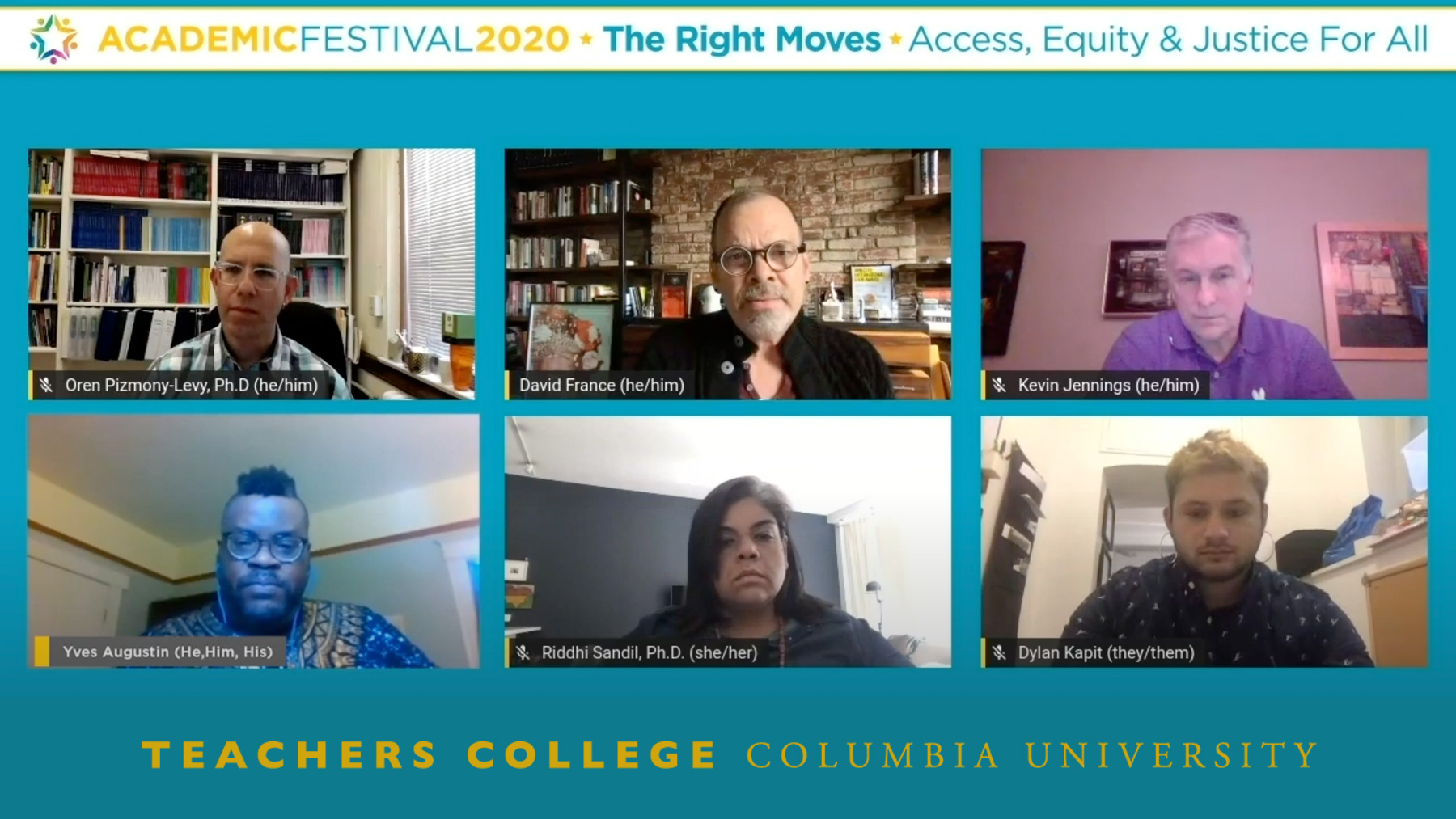“If you are not LGBTQ, you can assume that an LGBTQ has experienced prejudice, bigotry and violence,” says Kevin Jennings (M.A. ’94), Chief Executive Officer of Lambda Legal.
Nowhere is that more likely to be true than in Chechnya, a republic of Russia. While the Eastern European nation is among 70 countries that has made homosexuality illegal (and 96 that ban transgender and transsexual people), it has been carrying out a particularly brutal systemic, state-sanctioned purge of LBGTQ individuals.
That is why, in midsummer 2017, the filmmaker, journalist, author and activist David France ventured to Chechnya. And that is why Jennings chose to executive produce France’s resulting film, Welcome to Chechnya, which documents efforts by activists to smuggle LBGTQ community members out of the Northern Caucuses to the relative safety of Western European nations.
A discussion of the award-winning film, which The New York Times has called a “moving and vital indictment of persecution,” highlighted the opening day of TC’s 2020 Academic Festival.
Resistance in the State of Fear | LGBTQ+ Community in Chechnya & the Broader Fight for LGBTQ+ Rights
Joining France and Jennings for the conversation — titled “Resistance in a State of Fear: The LGBTQ+ Community in Chechnya, and the Broader Fight for LGBTQ+ Rights” — were Associate Professor of Practice Riddhi Sandil, 2020 TC graduate Dylan Kapit (M.A. ’20) and Yves Agustin, a student in the TC International & Comparative Education program. Associate Professor of International & Comparative Education Oren Pizmony-Levy served as moderator.
France credited the courage of activists who took the evacuation of LGBTQ Chechnyan nationals “in their own hands.” He also explained why he chose to use Artificial Intelligence technology to superimpose a different likeness on the faces of key figures in the film.
“The people I met there will never be safe,” France said. “They will always be victims of atrocity.”
Not that LGBTQ communities in the United States are immune from state-sanctioned discrimination.
The people I met there will never be safe. They will always be victims of atrocity.
—Director David France
“I’ve lost jobs, teeth and family members,” Jennings said. “And that is par for the course.”
“It is important to know this type of violence is happening here too,” said Kapit, now pursuing a doctorate in Special Education at the University of Pittsburgh. “LGBTQ people living in many states still face discrimination in housing, employment and health care. It is not a thing that happens in other countries. It’s happening here, it is happening every day and I think it is important to note it is a very real struggle for those of us who are not privileged, whether in the LGBTQ community or outside of it.”
Sandil, who directs TC’s master’s degree program in Counseling Psychology and Winter Roundtable, expressed the hope that creating public awareness is the “first step” toward easing and eliminating of anti-LGBTQ bigotry. When Kapit countered that the general population is “aware there are queer people in world — we’ve been here since beginning of time,” Sandil acknowledged the need to actively celebrate LGBTQ, gay and trans people.
“But it has sometimes been hard in my experience to get affirmation because people are not aware of my struggle or not aware of my existence,” she said. “I get it — we should be done trying to educate and that it is time for us to celebrate. However, in my world we’re not there yet.”
Kapit, who goes by the pronouns “they” and “them,” recalled that at 15, they told their grandmother, a Holocaust survivor, that they were gay.
“She didn’t know what gay was,” recalled Kapit. “Today, my grandmother wears a shirt that says, ‘I’m Proud of My Trans Grandson.’ And if my 85-year-old grandmother who escaped the Nazis can come around, then anyone can do it.”

